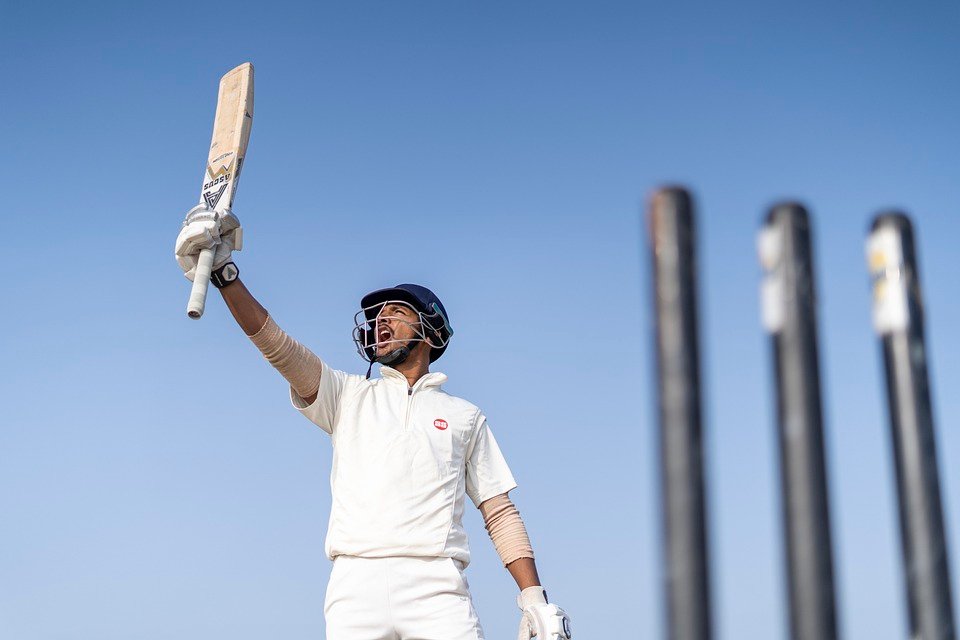In recent news, Pakistan refuses the hybrid model for ICC 2025, a decision that has sparked discussions and debates within the cricketing community. The hybrid model, which aimed to balance the hosting responsibilities among various nations, has been met with resistance from Pakistan’s cricket authorities. In this article, I promise to keep you updated with proper insights about why Pakistan has taken this stand and what it could mean for the future of cricket tournaments. As we explore this topic, you can rely on us for comprehensive information on “Pakistan refuses hybrid model for ICC 2025”.
Looking ahead, I believe the implications of Pakistan’s refusal could be significant for the landscape of international cricket. As the debate unfolds, it may lead to re-evaluations of how the ICC organizes its future events and the roles different countries play in hosting. With over 10 years of experience in cricket and sports journalism since 2013, we take pride in providing reliable information and updates. In my opinion, our expertise makes us well-suited to share the intricacies and potential consequences of the decision regarding “Pakistan refuses hybrid model for ICC 2025.” So, let’s dive deeper into this important topic together.
Pakistan Refuses Hybrid Model for ICC 2025: What’s Next?
The Decision Explained
Recently, Pakistan made a significant choice about the future of cricket. They decided not to adopt the hybrid model proposed for the ICC 2025. In this model, matches would be split between home and away games, creating a mix of teams playing in different formats. However, Pakistan feels that this approach doesn’t truly represent their cricketing identity. They believe that a more traditional format allows them to showcase their strengths and connect better with their fans.
By stepping away from the hybrid model, Pakistan aims to maintain the charm and excitement of international cricket. This decision allows cricket lovers in Pakistan and around the world to anticipate thrilling matches as they have in the past. The cricket community is abuzz with discussions. Will other nations join them in this stance, or will they move forward with the new model?
Pakistan’s Cricket Heritage
Cricket is not just a game in Pakistan; it’s a way of life. The country’s rich history in cricket brings together fans from different backgrounds, regions, and cultures. From the sunny fields of Lahore to the energetic streets of Karachi, cricket acts as a unifying force. I think this tradition is something that every Pakistani values deeply. This heritage plays a big role in how decisions regarding cricket are made.
Still, it’s vital to remember that Pakistan has made tremendous contributions to international cricket. Legendary players have graced the pitches, showcasing skills that fascinated audiences. In my opinion, sticking to a model that respects this heritage allows Pakistan to shine on the global stage, showcasing their unique style and passion for the sport.
What Is the Hybrid Model?
The hybrid model intended to create a format where teams would play a mix of series at home and away. The aim was to balance cricket schedules and provide more opportunities for teams to interact with their fans. In this proposed setup, fans might have seen their favorite teams playing at home while also experiencing thrilling away matches, making the sport accessible to more spectators.
Despite its well-meaning intention, the hybrid model hasn’t managed to win everyone’s hearts. Cricket fans and experts alike have debated its merits extensively. I feel that while the hybrid model has its advantages, it may not cater to the distinctive needs of each cricketing nation. And that difference is critical, especially for a country like Pakistan that has so much to offer on the cricket field.
Impact on International Relations
The decision by Pakistan not to adopt the hybrid model could influence relationships with other cricket-playing nations. Cricket is often more than just a game; it serves as a bridge between countries, fostering diplomacy and camaraderie. When teams play against each other, they promote goodwill and connect people worldwide. By refusing the hybrid model, Pakistan sends a message regarding its commitment to how it wishes to interact with the global cricketing community.
As the cricketing world watches closely, various teams may reconsider their strategies. I think it’s crucial for nations to have open conversations about their preferences. Instead of rigid structures, perhaps flexibility could help forge stronger ties and satisfy everyone’s needs within the cricketing circle. We must remember that each decision can have a ripple effect on the broader community.
Fan Reactions
Cricket fans in Pakistan have had varied reactions to this news. Many supporters feel excited about the choice, believing it reinforces their love for the game. They appreciate the decision to uphold traditions that have long defined cricket in their country. In contrast, some fans express disappointment, hoping for more innovation and adaptability in the evolving world of sports.
I think feedback from fans will play a vital role as we progress. Their voices matter, and creating an environment where fans feel heard can only benefit the sport. Engaging fans through surveys or discussions could help bridge the gap between traditional approaches and innovative ideas. It’s essential to involve them in future planning.
Future of Pakistan Cricket
Looking ahead, Pakistan’s decision to reject the hybrid model could pave the way for exciting opportunities. This choice emphasizes the importance of preserving local cricketing culture while calmly reassessing potential changes. I feel this stance could unify them as they rally around their national team in upcoming international tournaments.
In my opinion, maintaining strong relationships with fellow cricketing nations is crucial. While playing according to their own values, Pakistan should also focus on collaboration and respect within the sport. Achieving a balanced dialogue will allow Pakistani cricket to thrive and fully utilize its vibrant capabilities. It’s an exciting time, and all eyes are on what they will do next.
Conclusion: The Road Ahead
As we reflect on Pakistan’s decision, the prospects for its cricketing future remain bright. The rejection of the hybrid model is a bold move, and now it’s time for Pakistan to chart its course forward. Engaging with fans, fostering relationships, and standing firm in their convictions can lead to a flourishing cricket scene.
I think we all hope that this decision serves as a catalyst for even greater achievements in the future. With over 10 years of experience in the cricket and sports field since 2013, we understand just how important it is to stay true to one’s roots while also embracing growth and change in the ever-evolving world of sports. Together, let’s support Pakistan cricket as it navigates the exciting journey that lies ahead!





